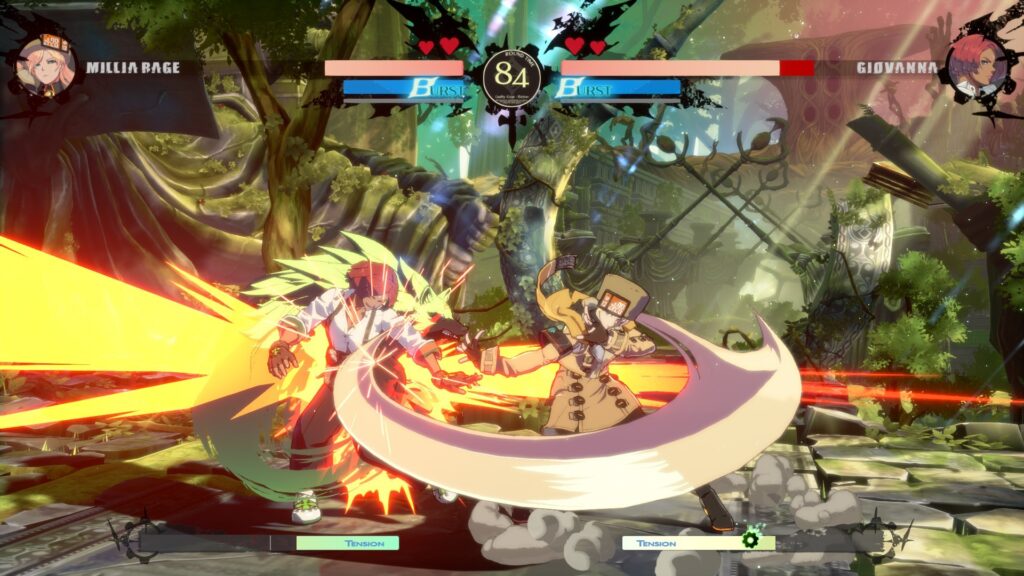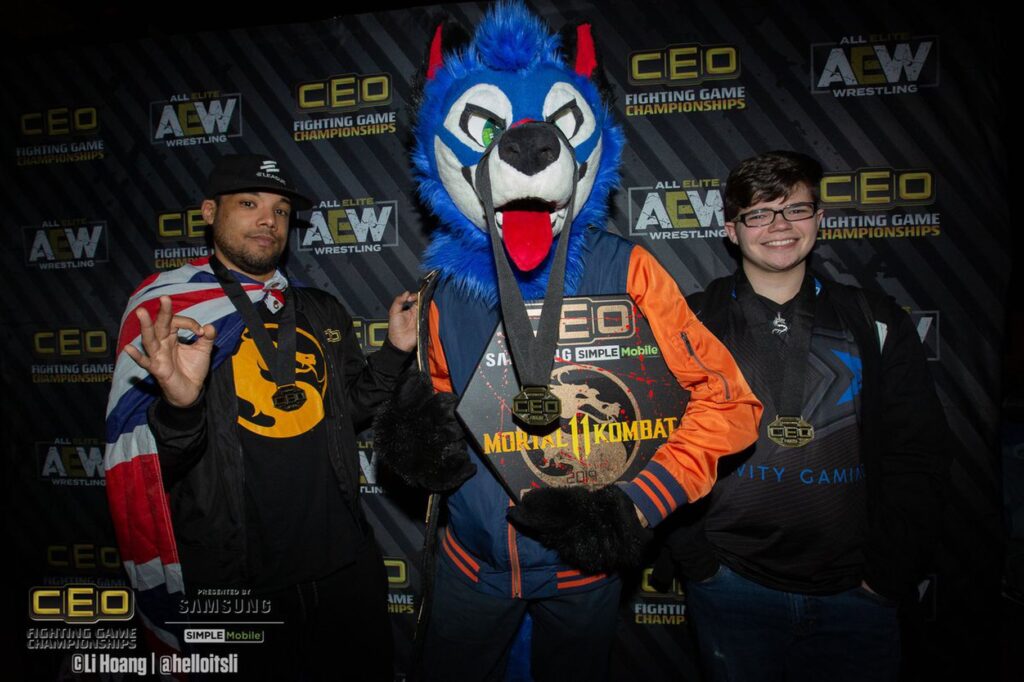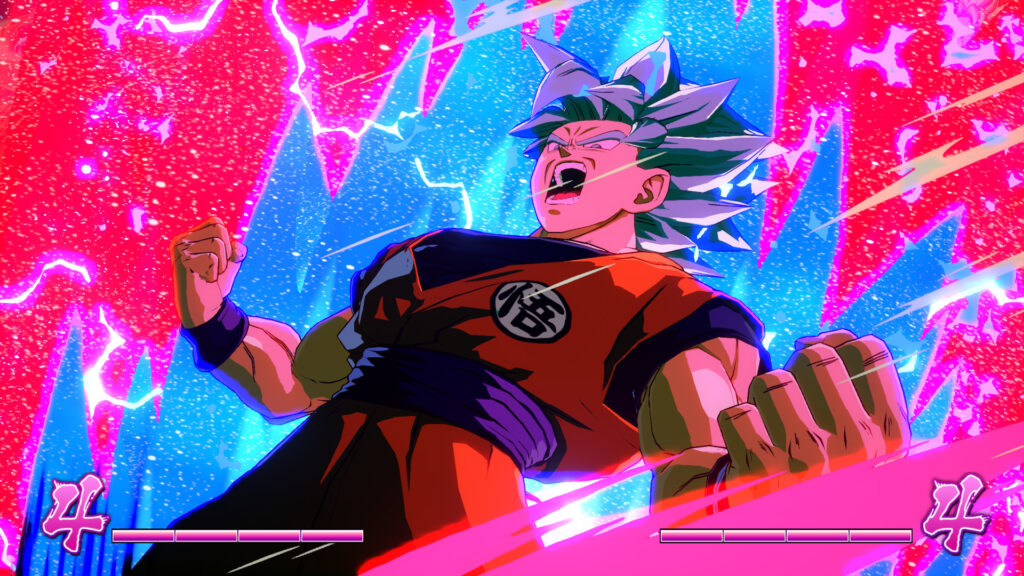
The trans and non-binary fighting games players making a difference
The fighting games community (FGC for short) is the group of players, tournament organizers, spectators, and everyone else involved in fighting games. They play all sorts of fighting games from Super Smash Bros to Street Fighter to Them’s Fightin’ Herds and everything in between.
The FGC is a smaller pool than more traditional esports like Overwatch and League of Legends. The community is diverse, especially for more niche fighting games, such as anime games or retro games. Despite being a smaller community, the personalities competing and making events happen are more recognizable in the scene than ever; thanks in large part to social media and the internet.
These people are top-level tournament players. They help run brackets and streams so competitors and spectators can experience competition as intended, or introduce new people to the FGC. Some trans/non-binary members of the FGC are well-known commentary personalities or lab monsters posting their in-game discoveries for others to learn from. Some people do a combination of things in their local scenes or for their favourite games. The variety of games that make up the FGC is as numerous as the different roles people can play to make it their own.
Fighting games are unique in many ways, but sometimes they can fall back into online gaming tropes of mistreatment of women, misgendering trans and non-binary players, or pandering to an assumed cis male player base.
That said, the FGC has made great strides in recent years to be more welcoming and inclusive of its members, spectators, and fans. Trans and non-binary players have placed very well in events over the years. Dominique McLean aka Sonicfox, a non-binary fighting game player, has won numerous tournaments in all sorts of games, ranging from Injustice to Skullgirls. They’ve been placing well ever since they stepped on the scene in the late 2010s.
Ricki Ortiz placed second in Capcom Cup 2016, the highest-profile Street Fighter V tournament in the world. To date, that’s the highest placing by a woman in any Capcom Cup.
The most recent similar placement by a woman came from Mia Reshel aka Mira. She placed second in the first online Capcom Pro Tour West Coast qualifying tournament. In addition to being a top-level Street Fighter competitor, Mira has also been competing in Guilty Gear: Strive tournaments and doing well for herself despite not coming from an anime game background. Her start in fighting games came from Super Smash Bros.

“When SFV came out, I was watching EVO. SFV was on before [Super Smash Bros] Melee,” Mira said. “The whole spectacle of it. The energy made me want to compete and start practicing.”
Mira started practicing and met local Milwaukee players like Brian_F and JustAKid, both of whom are still strong in the competitive Street Fighter scene. She entered the scene as she began transitioning but said the FGC was more welcoming and understanding than some other areas of her life.
“I was only really out to close friends and some family,” Mira said. “The Midwest FGC was very accepting and quick to switch my pronouns.”
Others involved in the FGC made their transitions after joining the scene. From those spoken to for this article, the responses from other members were mostly positive. If any issues came up, they were usually related to the more mainstream games with larger audiences.
“DBFZ [Dragon Ball Fighter Z] is newer and much more mainstream, there is a lot more homophobia and transphobia,” non-binary Dragon Ball Fighter Z and Skullgirls commentator and tournament organizer, Jacob “Kuba” Pich said. “A lot of people stuck in their old gamer tropes. Not saying it’s bad, by any means, but it’s different than Skullgirls.”
Similar to Kuba’s story, Kelly “SQuirrel147 or SQ” Chapdelaine says her experience as an anime game competitor in titles like Guilty Gear: Strive and Persona 4 Arena, differed from her time in more traditional fighters such as Street Fighter or Tekken.
“The bigger the game is, you get more people from different avenues of life,” SQ said. “Usually a smaller community will have a lot of similar people since they know each other.”
Being more known in a scene usually helps players and community members avoid misgendering and other issues they could face, but not always. “Things could be a bit better in some regards,” SQ said. “It’s the type of thing, when it comes to being trans, you build up a strong tolerance for a lot of things. It’s gotten better as I’ve gotten more known in the scene.”

SonicFox, for example, has been known to make their username “TRANS RIGHTS” or wear the trans pride flag as a cape in competition. Most commentators have made the adjustment to use “they/them” pronouns when they’re competing. Twitch chat is another story. The Skullgirls’ scene has been particularly positive of SonicFox and its other LGBTQ+ members.
“Skullgirls literally has a meme that in most top eights, the only player that isn’t LGBT is Dekillsage, who is also one of the biggest allies for LGBT around,” Kuba said.
Kuba also says Future Club, the developers behind Skullgirls, have helped promote their game as a place for everyone – a place where it’s okay for people to be themselves
The majority of those spoken to for this article said they’ve had a positive experience in the FGC and feel welcomed by both their fellow competitors, and tournament organizers.
As in-person events declined due to COVID-19, many resorted to online competitions. Competitors and commentators alike have been working on using more gender neutral pronouns for players on stream to avoid misgendering people.
“I had to put a lot of time into unlearning when I first started,” Kuba said. “You’re not going to know everyone’s pronouns. It’s much better to default to ‘they/them’. The newer ones [commentators] are putting in the work to unlearn the behavior.”
Even players themselves can default to male pronouns for their opponents during online play. This is likely a result of how video games tended to be marketed at cis men in the early stages of the genre.
“I even catch myself doing it [calling opponents male pronouns]. It’s kind of ingrained a bit,” Mira said. “Online in general, pronouns are defaulted to male. I think it’s something you have to really try to change in yourself. I hate when people do that to me.”
SQ echoed a similar sentiment.

“Video games as a whole have been so largely male-dominated for so long,” she said. “Now it’s not really the case, but it still has that feel to it. I don’t think that’s the case anymore, but a lot of people may still think that way.”
More recently, especially as online competitions continue, there have been new spaces for women and non-binary players, specifically, to showcase their skills and compete. One such event is Royal Rivals. The event has been hosting women and non-binary only tournaments and exhibitions for Street Fighter V and Guilty Gear Strive over the past year. Every aspect from the entrants to the commentary team is led by women or non-binary members of the FGC.
“These sorts of tournaments are a place where like minded people can play in safety,” Mira said. “None of the patronizing stuff. Just here to have fun and enjoy their hobbies.”
As the various game scenes grow more accepting, the thing that makes the FGC unique is the “C” part of the acronym. It’s a community and as such, players and spectators alike come together to improve at their favorite games and compete. The trans and non-binary members of the FGC have already made names for themselves and it doesn’t seem like their momentum is slowing down anytime soon.
The FGC is already one of the more diverse spaces in gaming. As its reach grows with every fighting game scene, new and retro, maintaining its inclusive feel for players, tournament organizers, and spectators alike is as important as it’s ever been.





